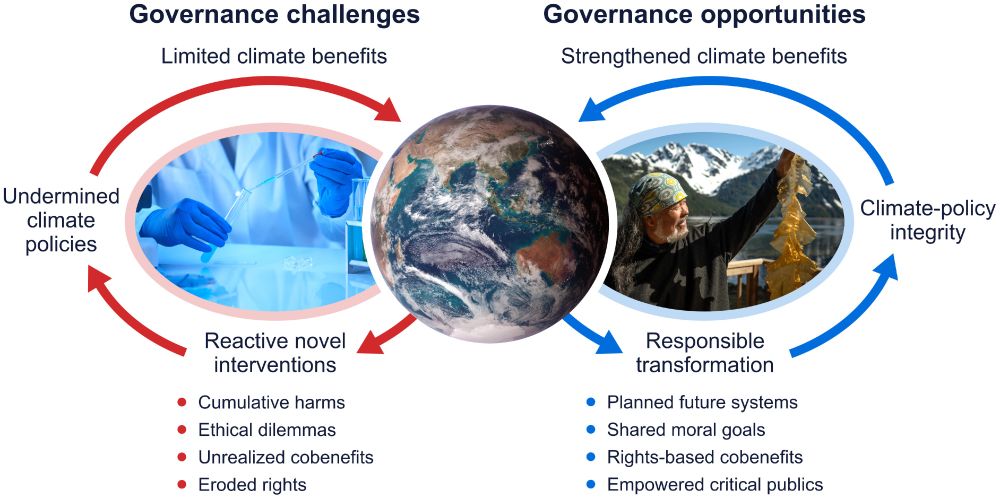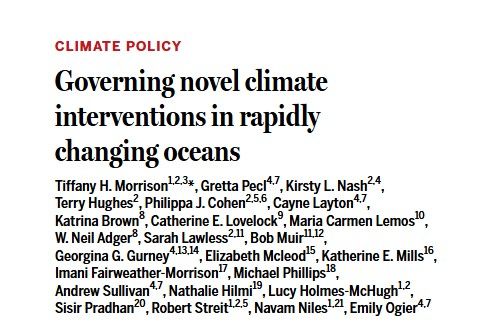Prof Tiffany Morrison
@proftiffanym.bsky.social
21 followers
30 following
3 posts
Prof, mentor and leader of Governing Changing Oceans program, University of Melbourne ARC Laureate @jcuofficial.bsky.social @w-u-r.bsky.social @snappartnership.bsky.social
governingchange.org
Posts
Media
Videos
Starter Packs
Reposted by Prof Tiffany Morrison
Reposted by Prof Tiffany Morrison
Reposted by Prof Tiffany Morrison
Mongabay
@mongabay.com
· 26d

Experimental ocean climate fixes move ahead without regulation
Experimental climate interventions in the world’s oceans are moving ahead in a regulatory vacuum, raising concerns among scientists about potential risks, Mongabay staff writer Edward Carver…
news.mongabay.com
Reposted by Prof Tiffany Morrison
Mongabay
@mongabay.com
· 26d

Experimental ocean climate fixes move ahead without regulation
Experimental climate interventions in the world’s oceans are moving ahead in a regulatory vacuum, raising concerns among scientists about potential risks, Mongabay staff writer Edward Carver…
news.mongabay.com
Reposted by Prof Tiffany Morrison
Reposted by Prof Tiffany Morrison
Reposted by Prof Tiffany Morrison
Reposted by Prof Tiffany Morrison
SNAPP
@snappartnership.bsky.social
· Aug 5
Reposted by Prof Tiffany Morrison
Sciences
@sciences.skyfleet.blue
· Jul 31

Governing novel climate interventions in rapidly changing oceans | Science
Marine systems are rapidly changing in response to global heating. The scale and intensity of change are triggering a host of novel interventions to sustain oceans and ocean-dependent societies. However, the pace of new interventions is outstripping ...
www.science.org
Reposted by Prof Tiffany Morrison
Reposted by Prof Tiffany Morrison
Reposted by Prof Tiffany Morrison
Ian Hall
@ianhall.bsky.social
· Jul 31

Governing novel climate interventions in rapidly changing oceans
Marine systems are rapidly changing in response to global heating. The scale and intensity of change are triggering a host of novel interventions to sustain oceans and ocean-dependent societies. Howev...
www.science.org
Reposted by Prof Tiffany Morrison
Reposted by Prof Tiffany Morrison
Reposted by Prof Tiffany Morrison













